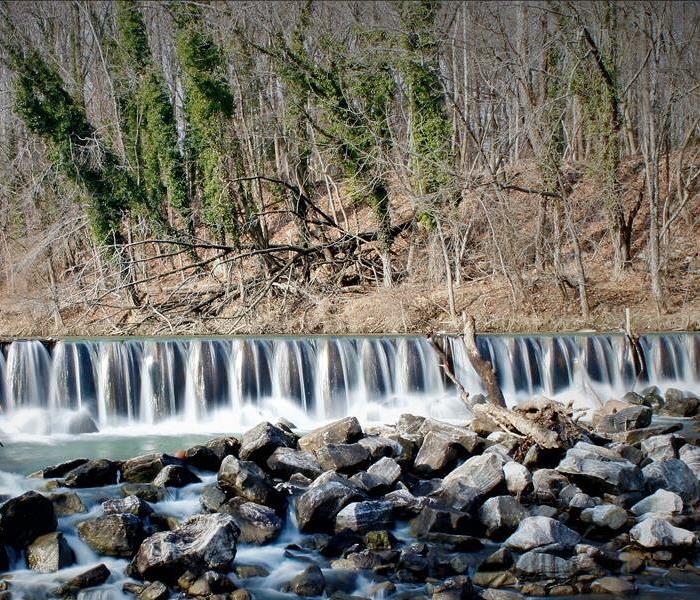3 Common Flood Types Caused By Chattahoochee River flooding
10/5/2020 (Permalink)
Chattahoochee River flooding has caused thousands of dollars worth of flood damage to homeowners each year.
Floods are known to cause damage to any property in a flood zone. In this post, you will learn about the various types of floods and how they can affect your property.
SERVPRO knows first hand that water damages come in all shapes and sizes. The most severe water damages fall under a Category 3 water damage. A Category 3 water damage, also known as "black water" damage, includes rising flooding, seawater, sewage water, and river water. These water losses require quick action to mitigate any potential health risks.
Chattahoochee River flooding can occur quickly or slowly, affecting prominent flood zone areas and those that appear completely harmless in dry weather.
How can floods affect your Georgia Property?
Water damage from flooding produces potential health and safety risks if the water is not immediately cleaned up, including:
- Structural damage
- Electrical damage and risks
- Sanitary hazards and diseases from standing water
- Defunct drainage and sewage systems
- Destruction to roads and bridges
- Landslides
Although flooding in northern Georgia does not occur often, it is still something that needs to be considered. SERVPRO is here to help with any flooding from the Chattahoochee River, Toccoa River, and Ocoee Rivers.
3 Types of Chattahoochee River flooding Damages
Chattahoochee River flood stage is characterized by the size of riverbank overflows caused by extensive rainfall over an extended period of time. Most structural damages occur when a property is located in a flood zone and undergoes mass amounts of rainfall.
Outside of rising waters from the Chattahoochee River, we have seen the following three types of flooding also occur:
1. Flash Floods
Flash floods are caused by heavy rainfall or when snowfall thaws quickly. Flash floods are typically known to be fast-moving waters that sweep anything that comes in their path. A typical flash flood usually covers a small area lasting around six hours or less. Flash floods have the capability to move large objects such as cars, rocks, and trees. It is essential to have a local water restoration number when a flash flood occurs near your property.
2. Pluvial floods
Pluvial flooding is similar to urban flooding, but it mainly only occurs in rural areas. These floods form in flat areas where the terrain can’t absorb the rainwater, causing puddles and ponds. Pluvial floods have a severe effect on agriculture, causing many damaged crops.
3. Urban floods
Urban floods occur when the drainage system in a city or town fails to absorb the water from heavy rain. An urban flood will result in water flowing out onto the street, making transportation very dangerous. The average water levels of an urban flood is a few inches deep, but they cause significant structural damage.
Conclusion
Chattahoochee River flooding can cause severe flood damage to properties, but there are many ways to prevent it. Contact SERVPRO today to come out and evaluate your property and see how you can protect yourself from Chattahoochee River flooding. The SERVPRO restoration professionals are highly trained by the IICRC. Flooding is not something that should be taken lightly that is why we suggest to all of our local residents to have a flood plan in place.
More on the Chattahoochee River
Call us at (706) 896-1880





 24/7 Emergency Service
24/7 Emergency Service
